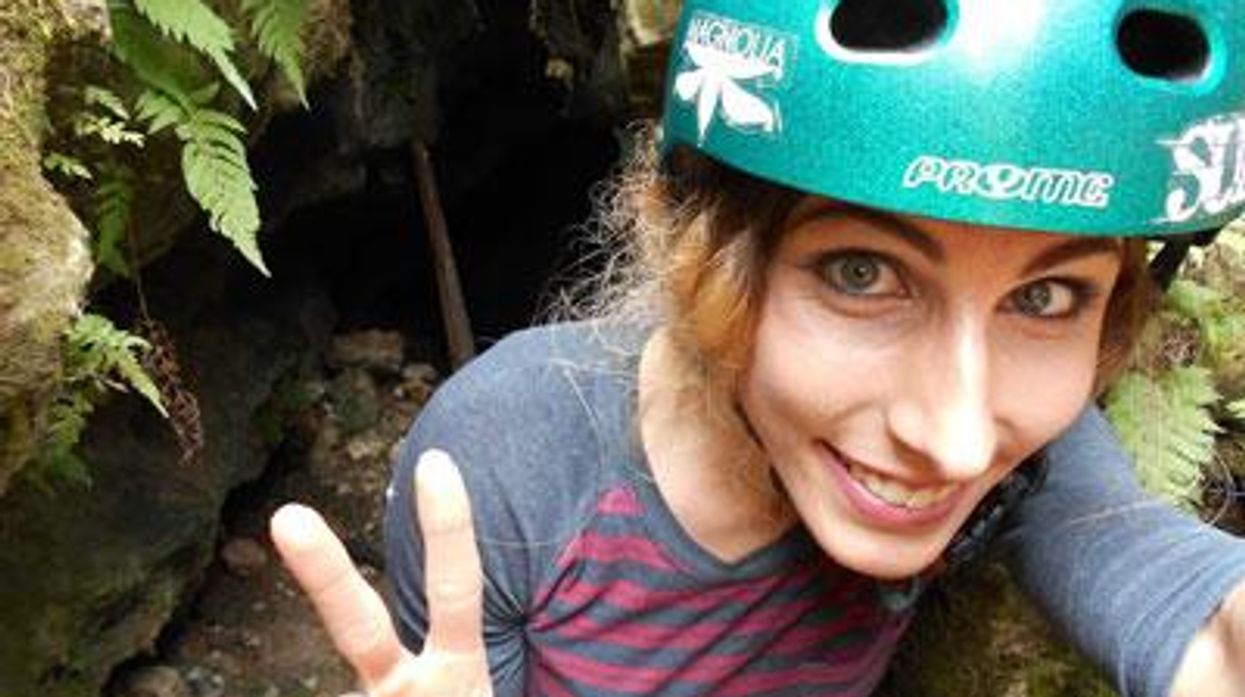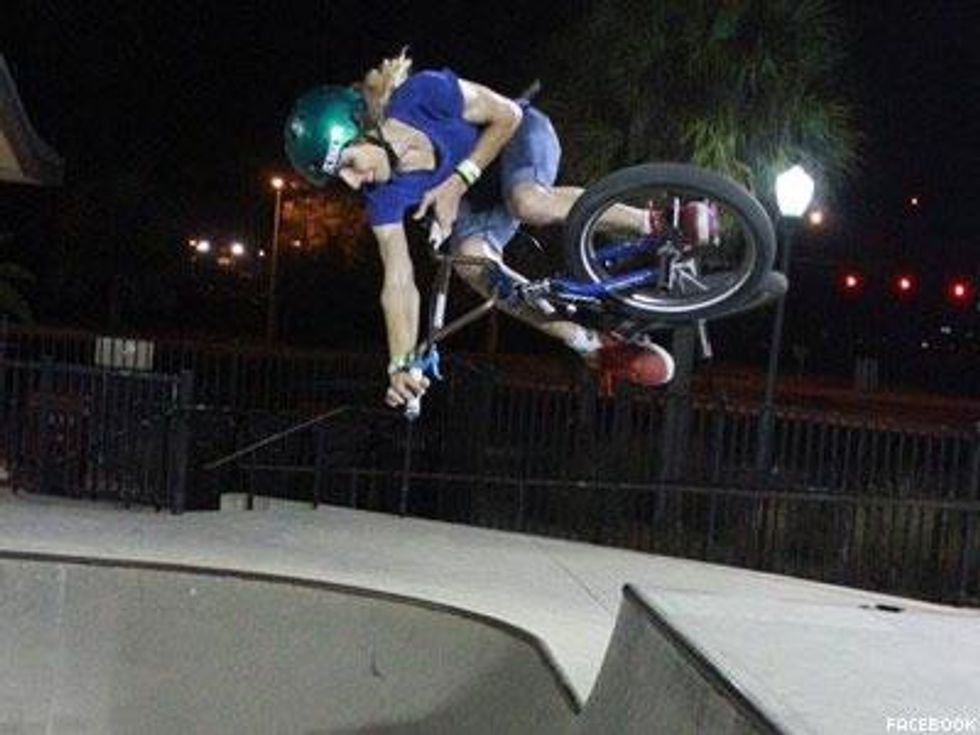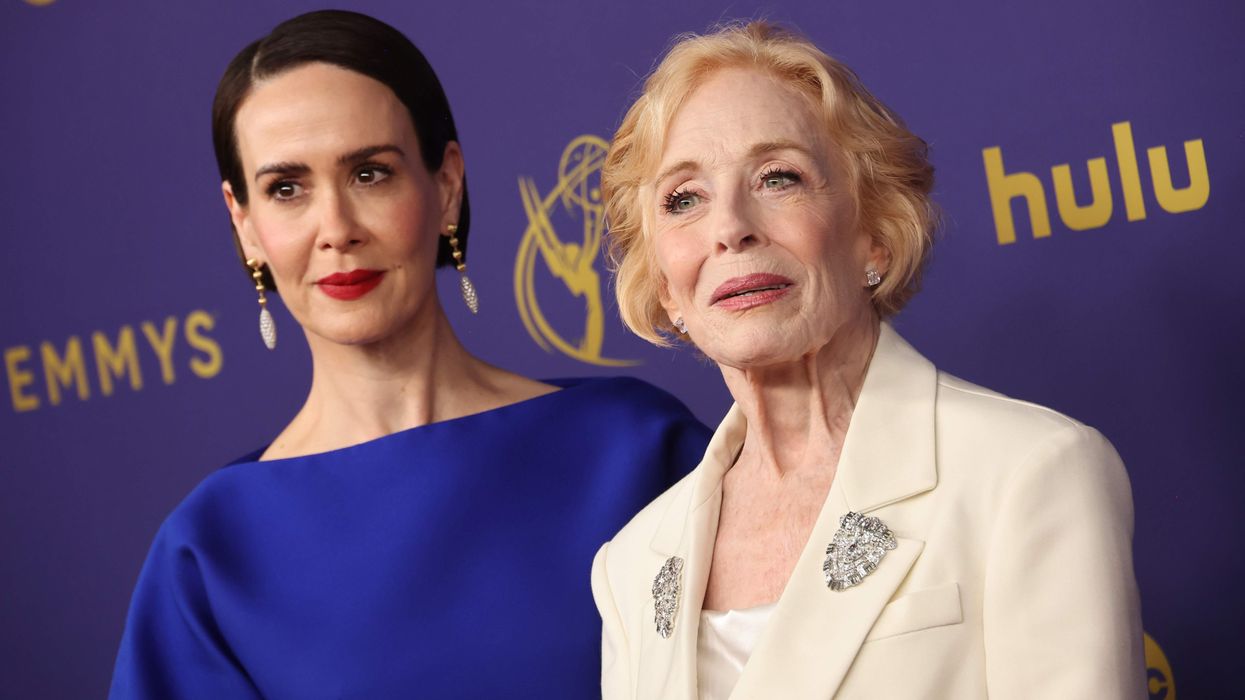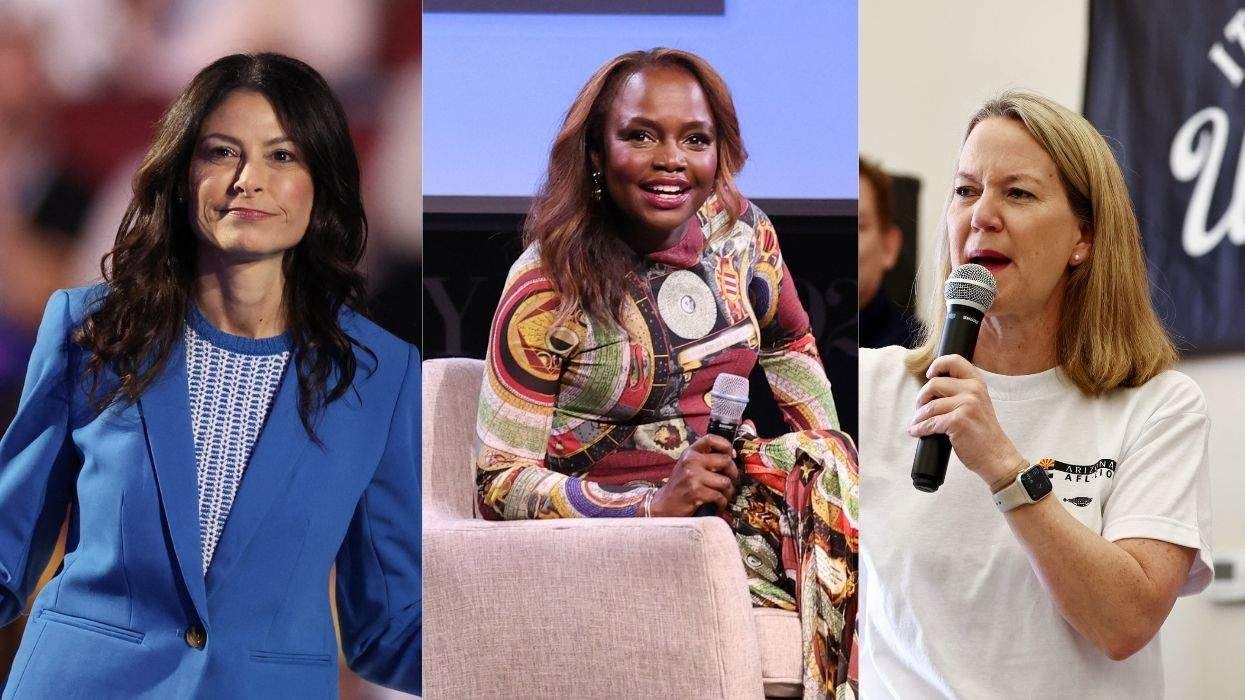When online BMX magazine The Come Up posted an impressive video of 21-year-old transgender biker Chelsea Fietsgodin in May, editor Adam LZ says he wasn't prepared for the backlash. He simply wanted to introduce their readers to one of the sport's up-and-coming female riders.
But he soon encountered some viewers lashing out against Fietsgodin's trans status, questioning if she should be included among the ranks of women riders -- an argument that echoes the experiences other trans women partaking in women's sports.
"The question of Chelsea's gender had been brought up in a rather crude fashion," LZ recalls, so he asked Fietsgodin to discuss her experiences with the wider biking community. BMX, he points out, is not as progressive a sport as many believe, and the closet for LGBT players continues to remain closed unless space is intentionally opened.
In the interview last month, Fietsgodin -- who reveals that her last name is a professional pseudonym which translates to "bike goddess" in Dutch -- has a self-assuredness that belies the fear she's felt about opening herself up to others' reactions.
"It's amazing how quickly a few people started shouting stuff about me being a man because I can ride a bike well and I've got strong legs (which, shockingly, happen when you ride bikes everyday)," she shares.
 "That says a lot about what they think of women riders. They can't let us have success so they try to take our accomplishments as their own, in this case by misgendering me. I see this happening for cisgender [nontrans] women athletes as well," she continues.
"That says a lot about what they think of women riders. They can't let us have success so they try to take our accomplishments as their own, in this case by misgendering me. I see this happening for cisgender [nontrans] women athletes as well," she continues.
Fietsgodin also explains how accusations that she "cheated" at women's BMX by being transgender kept her from releasing any videos of herself riding until now. She was only able to overcome internalized sexism and transphobia with "a combination of support from other girl riders and analyzing where those thoughts came from."
"The big thing to realize ... is that I'm not here to compete with other women and girls riding, I'm here to have fun on my bike and push the progression of women's riding and our acceptance within the sport," she says, reminding readers that BMX freestyle was never intended to be competitive.
"I think a big problem stems from women riders being pitted against one another as if there can only be one of us that's the best in the world."
Read the full interview here and catch the video -- originally titled "Is This the Best Girl BMX Rider Ever?" by The Come Up -- below.


 "That says a lot about what they think of women riders. They can't let us have success so they try to take our accomplishments as their own, in this case by misgendering me. I see this happening for cisgender [nontrans] women athletes as well," she continues.
"That says a lot about what they think of women riders. They can't let us have success so they try to take our accomplishments as their own, in this case by misgendering me. I see this happening for cisgender [nontrans] women athletes as well," she continues.

































































Charlie Kirk DID say stoning gay people was the 'perfect law' — and these other heinous quotes